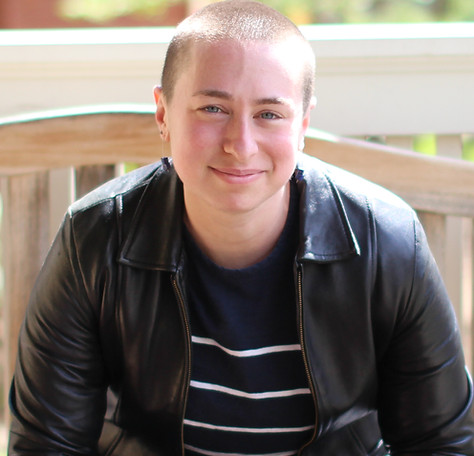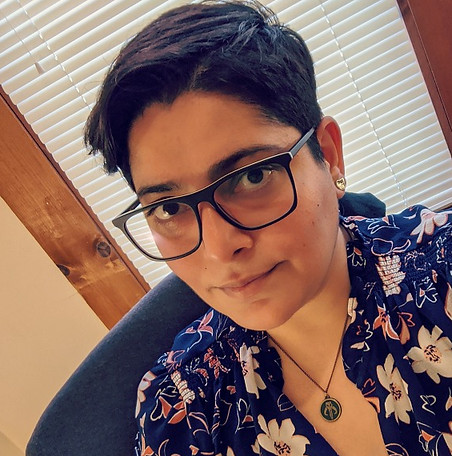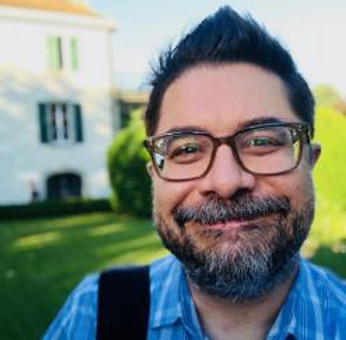
Kendra Albert is a Clinical Instructor at the Harvard Law School Cyberlaw Clinic as well as a Lecturer on Law at Harvard Law School. Their legal practice at the clinic focuses on computer security law, the law of software preservation, and freedom of expression issues, where as their classroom teaching covers subjects as disparate as law affecting transgender people and press freedom. They hold a J.D. from Harvard Law School and a B.H.A. from Carnegie Mellon University.
What’s a freedom of expression issue that you wish got more attention?
How the rollout of tablets in jails and prisons limits reading and educational options for people who are incarcerated.
Christopher Bavitz is the WilmerHale Clinical Professor of Law at Harvard Law School. He is also Managing Director of HLS’s Cyberlaw Clinic, based at the Berkman Klein Center for Internet & Society. And, he is a Faculty Co-Director of the Berkman Klein Center. Chris teaches the Counseling and Legal Strategy in the Digital Age and Music & Digital Media seminars, and he concentrates his practice activities on intellectual property and media law (particularly in the areas of music, entertainment, and technology). He oversees many of the Cyberlaw Clinic’s projects relating to copyright, speech, advising of startups, and the use of technology to support access to justice, and he serves as the HLS Dean’s Designate to Harvard’s Innovation Lab.
What’s a freedom of expression issue that you wish got more attention?
I’m interested in the tension between the right and ability to speak anonymously and the right and ability to report lawfully acquired information about matters of public concern. The latter might include revealing the identity of someone who’d prefer their identity not be revealed, underscoring that norms against “doxing” can bump up the journalistic imperative to seek and report the truth. The prospects of naming a whistleblower, informing a company that one of its employees attended a rally while wearing a mask, or reporting on a government official’s use of a pseudonymous social media account bring these issues home in different ways.
Jasjot Kaur is the Senior Project Coordinator for IfRFA. Previously, Jasjot worked as the Enrollment Data Manager and Registrar at Urban College of Boston - a two year school that focuses on education to those in the urban community traditionally under-served by higher education. Jasjot is most passionate about education and empowerment to individuals in marginalized communities and random Star Wars trivia. They are originally from New Delhi, India.
What’s a freedom of expression issue that you wish got more attention?
I am interested in providing a voice to those of us who are almost always housing insecure due to the changing markets, high rent, and those of us who are afraid to speak out or speak up due to the fear of being evicted as a backlash from landlords/property managers.
I
ADVISORY BOARD
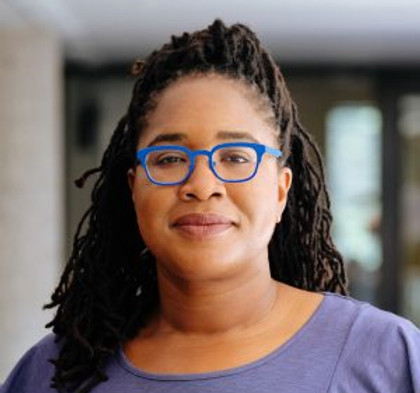
Jasmine McNealy
she/her/hers
Jasmine McNealy is an associate professor in the Department of Telecommunication, in the College of Journalism and Communications at the University of Florida, where she studies information, communication, and technology with a view toward influencing law and policy. Her research focuses on privacy, online media, and communities. She holds a PhD in Mass Communication with and emphasis in Media Law, and a J.D. from the University of Florida, and a Bachelor of Science degree in both Journalism and Afro-American studies from the University of Wisconsin.
What’s a freedom of expression issue that you wish got more attention?
The impact of power agnosticism on interpretations of free expression, as well as censorship/self-censorship of marginalized communities, and protecting anonymity.
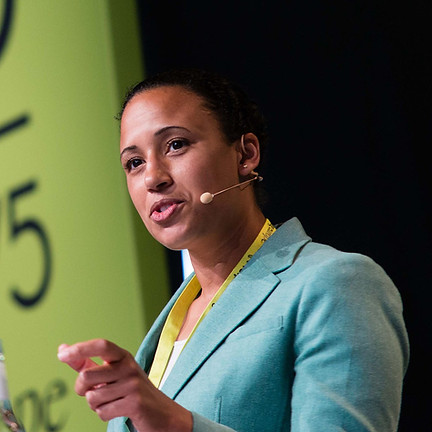
Nani Jansen Reventlow
she/her/hers
Nani Jansen Reventlow is the founding Director of the Digital Freedom Fund, which supports partners in Europe to advance digital rights through strategic litigation. She is a recognised international lawyer and expert in human rights litigation responsible for groundbreaking freedom of expression cases across several national and international jurisdictions. Nani is a Lecturer in Law at Columbia Law School and an Associate Tenant at Doughty Street Chambers. She is an Affiliate at the Berkman Klein Center for Internet & Society at Harvard University, where she was a 2016-2017 Fellow, and has been an advisor to Harvard’s Cyberlaw Clinic since 2016.
What’s a freedom of expression issue that you wish got more attention?
The impact (automated) content moderation has on marginalising the online speech of women, people of colour, and LGBTQI+ individuals and those situated in underrepresented linguistic, cultural and political contexts.

April "Kit" Walsh
she/her/hers
April "Kit" Walsh is a senior staff attorney at the Electronic Frontier Foundation, working on free speech, net neutrality, copyright, and other issues that relate to freedom of expression and access to knowledge. She has worked for years to support the rights of political protesters, journalists, remix artists, and technologists to agitate for social change and to express themselves through their stories and ideas.
What’s a freedom of expression issue that you wish got more attention?
How rights on paper will not translate into rights in practice if exercising those rights depends on wealth or privilege.

Danielle Blunt
she/her/hers
Danielle Blunt is an NYC-based Dominatrix, a full-spectrum doula and sex worker rights activist. Blunt is the co-founder of and organizer with Hacking//Hustling. She has her Masters in Public Health and researches the intersection of sex work and equitable access to tech from a public health perspective. She is a co-author of Hacking//Hustling's study on the effects of FOSTA-SESTA and the Removal of Backpage. She enjoys watching her community thrive and making men cry.
What’s a freedom of expression issue that you wish got more attention?
The way in which legislation like FOSTA-SESTA and the EARN IT Act are passed and proposed purporting to protect vulnerable communities, but what they actually do is carve away at freedom of speech online and create a chilling effect and increased exposure to violence in these already marginalized communities.
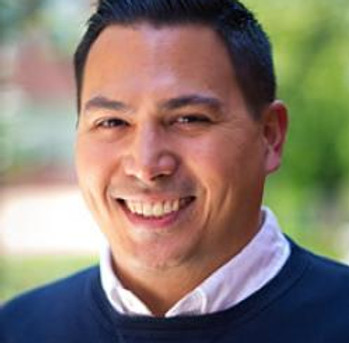
Andrew Geronimo
he/him/his
Andrew Geronimo is the Director of the First Amendment Clinic at Case Western Reserve University School of Law in Cleveland, Ohio. Geronimo joined the CWRU Law faculty in 2017 as the Stanton Foundation First Amendment Fellow, and has taught in the First Amendment Lab, the First Amendment Clinic, and the Intellectual Property Venture Clinic. Geronimo has tried cases and handled appeals in the state and federal courts in Ohio, and his advocacy focuses on the First Amendment issues, particularly those involving speech and press rights. Geronimo is a 2010 graduate of Case Western Reserve University School of Law and was a founding member and Editor-in-Chief of the Journal of Law, Technology & the Internet. Geronimo is admitted to practice in all Ohio courts, the United States District Courts for the Northern and Southern Districts of Ohio and the United States Court of Appeals for the Sixth Circuit.
What’s a freedom of expression issue that you wish got more attention?
Audience effects of censorship—how censorship of speakers affects the public's ability to learn, evaluate, compare, and criticize viewpoints.

Meenakshi Krishnan
she/her/hers
Meenakshi Krishnan is an associate in the media law and First Amendment practice at Davis Wright Tremaine LLP. Prior to joining DWT, she was a 2019-2020 Legal Fellow at the Knight First Amendment Institute and clerked for the Hon. James A. Wynn, Jr. of the U.S. Court of Appeals for the Fourth Circuit. She received her J.D. from Yale Law School, where she was a Student Director of the Media Freedom & Information Access Clinic and an Executive Editor of the Yale Law Journal. A Fulbright scholar, Krishnan received her B.A. in History and Political Science from Wake Forest University and her M.Phil. in International Relations and Politics from the University of Cambridge.
What’s a freedom of expression issue that you wish got more attention?
I’m concerned about the current wave of anti-protest state bills being introduced in the wake of the recent Capitol insurrection. These bills, which have been rebranded as a response to the failed coup, will in reality have disproportionate effects on progressive activists, like the Black Lives Matter movement.
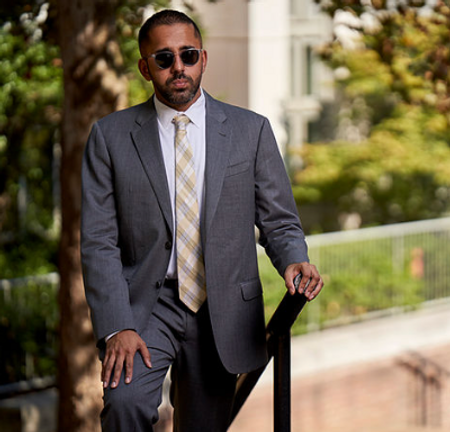
Gautam Hans
he/him/his
G.S. Hans is an Associate Clinical Professor of Law at Cornell Law School. An expert on First Amendment law and technology policy, Professor Hans analyzes, through research and advocacy, the legal and policy issues implicating technology and civil liberties. Professor Hans also researches and works on issues relating to clinical legal education, with a particular focus on social justice and diversity, equity, and inclusion. A leader in the national clinical community, he currently serves as a board member of the Clinical Legal Education Association and the Center for Study of Applied Legal Education. Prior to his academic career, Professor Hans worked at the Center for Democracy & Technology in Washington, D.C., and San Francisco, CA, for four years, focusing on privacy, free speech, and surveillance law and policy. Before joining Cornell Law, Professor Hans served as Associate Clinical Professor of Law and founding director of Vanderbilt Law School’s Stanton Foundation First Amendment Clinic. He completed his clinical teaching fellowship at the University of Michigan Law School, where he also heard his J.D. cum laude. He holds an M.S. in Information from the University of Michigan and a B.A. in English and Comparative Literature from Columbia University.
What’s a freedom of expression issue that you wish got more attention?
I worry about the state of speech protections for specific populations like students or government employees. I think the U.S. Supreme Court could do more to protect those who speak out regardless of their status.

